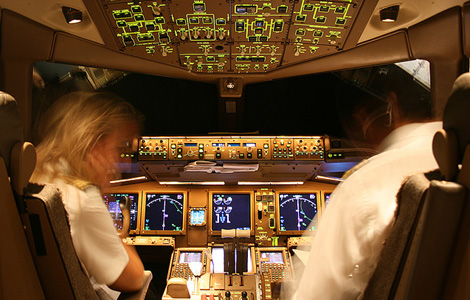FOQA is Watching
The little black box that looks over our shoulder.
Unless you’re in the aviation business, you’re probably unfamiliar with the acronym FOQA. In fact, many pilots couldn’t tell you what it means.
Pronounced foe-kwah, it stands for Flight Operational Quality Assurance. It’s an automatic recording and reporting system installed in some commercial aircraft. I don’t know all the details of how it works or what it tracks, but it continuously records a wide range of data about aircraft systems and flight performance. The goal is to improve flight efficiency and safety.
But FOQA can also be a snitch. If, for example, we overspeed the flaps (i.e., either put flaps down while going too fast or retract them too slowly while accelerating), FOQA will record the event, and it will get flagged once the data is downloaded. This shouldn’t be an issue, because the pilots are supposed to make a logbook entry for the overspeed event. But if they missed it, or elected to ignore it because it was only “a little fast,” they can probably expect a phone call from the chief pilot. A much more serious example would be if the pilots took off without selecting takeoff flaps (a very rare event, but it’s happened). This is definitely going to trigger some action.
Does this make pilots a little more attentive on a FOQA-equipped plane? You might think so, but the truth is that we don’t even pay attention to it. If you asked me halfway through a flight if the plane I was on had FOQA, I would have to check. The reason is simple: we don’t push the edge of the envelope, so we don’t worry about the snitch. It’s kind of like the security cameras in a bank: Honest people don’t worry about them.
/https://tf-cmsv2-smithsonianmag-media.s3.amazonaws.com/accounts/headshot/Steve-Satre-headshot.jpg)

/https://tf-cmsv2-smithsonianmag-media.s3.amazonaws.com/accounts/headshot/Steve-Satre-headshot.jpg)